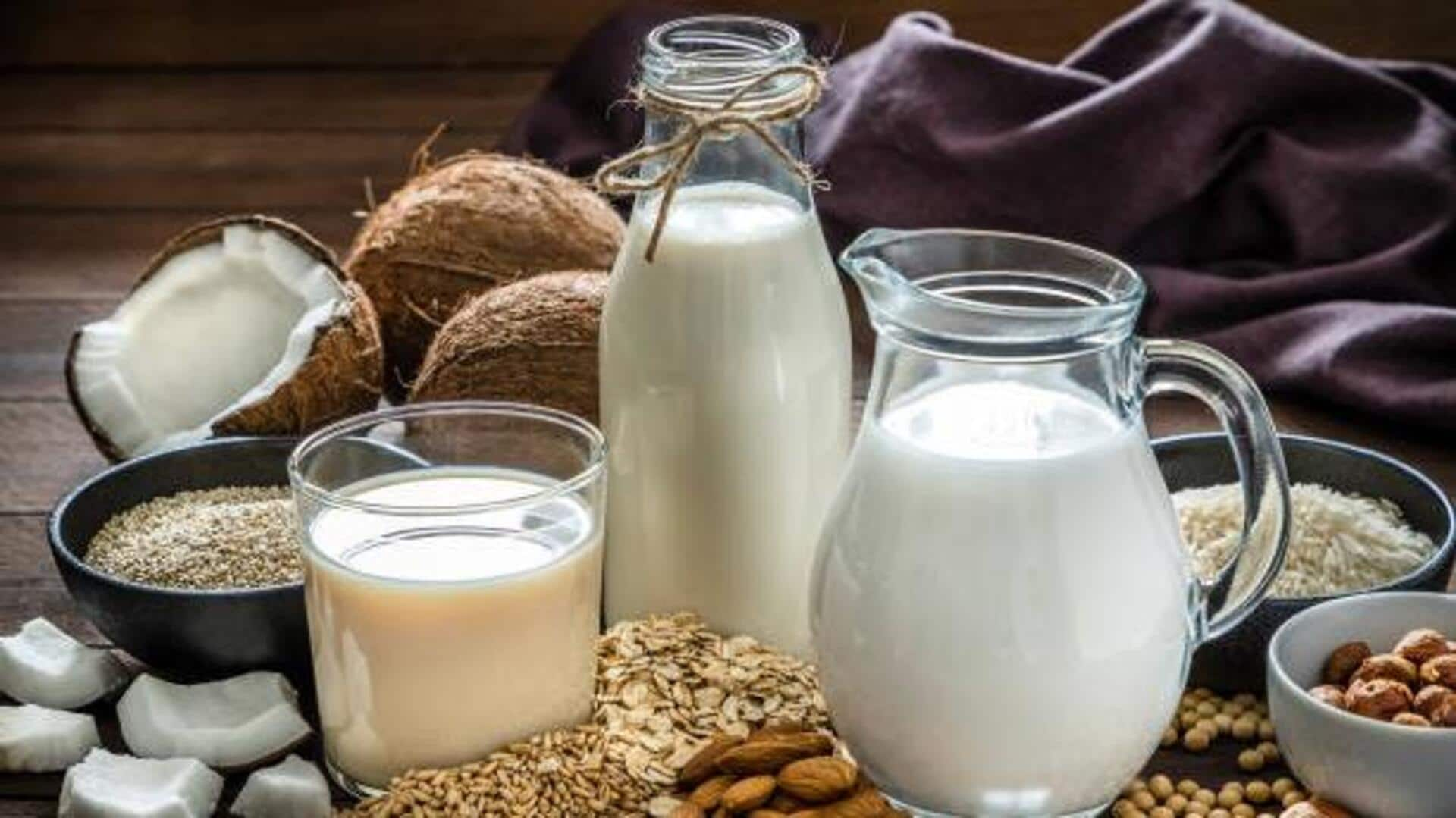
Dairy-free milk: 5 myths debunked
What's the story
With the increasing popularity of dairy-free milk alternatives, a number of myths have emerged regarding their health benefits. Many believe these plant-based milks are healthier than regular dairy, but the truth is a bit more complex. Knowing the nutritional value and health impacts of these alternatives is important for making informed dietary choices. Here, we debunk some common myths about dairy-free milks and their real health benefits.
#1
Myth: Dairy-free milks are always lower in calories
Many assume that all dairy-free milks are lower in calories than regular milk. While some options, such as almond milk, can be lower in calories, others like coconut milk may have similar or even higher calorie counts than cow's milk. It's important to check labels and understand that calorie content varies by product and brand.
#2
Myth: Dairy-free milks provide complete nutrition
Another common misconception is that dairy-free milks provide the same nutritional benefits as cow's milk. While some plant-based alternatives are fortified with vitamins and minerals, like calcium and vitamin D, they may not provide the same level of protein or other nutrients found in cow's milk. Consumers should ensure they're getting adequate nutrition from other sources if they choose to replace dairy completely.
#3
Myth: All plant-based milks are heart-healthy
The belief that all plant-based milks are heart-healthy can be misleading. Some varieties, particularly those high in saturated fats (like coconut milk), may not be ideal for heart health when consumed excessively. Opting for unsweetened versions and being mindful of fat content can help maintain a heart-healthy diet.
#4
Myth: Soy milk is the only protein-rich alternative
Soy milk is often touted as the only protein-rich, dairy-free option, but that's not entirely true. While soy milk does contain more protein than some other alternatives, like almond or rice milk, other options also offer decent amounts of plant-based proteins, like pea protein-based drinks. Exploring different options can help find suitable alternatives based on individual dietary needs.
#5
Myth: All dairy-free milks are gluten-free
Many assume all dairy-free milks are gluten-free, but that's not the case. Some brands may use grains like barley or wheat during processing, which can introduce gluten into the product. It's essential for those with gluten sensitivities or celiac disease to read labels carefully and choose certified gluten-free products when opting for plant-based milks.